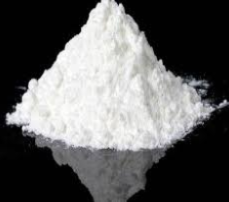P-TOLUENESULFONIC ACID MONOHYDRATE (PTSA)

Characteristics:
CH3C6H4SO3H.H2O , Molar mass: 190.2 g/mol, white crystalline hygroscopic powder. (a) reagent grade: m.p. 102-103oC (theory: 103-105oC), purity (min): 99%, free sulfuric acid <1%, Fe <1 ppm. (b) technical grade: m.p. 96-98oC, purity 95%, free sulfuric acid <5%, and Fe<30 ppm.
General Uses:
Besides its direct use as a reagent in chemical synthesis, p-toluenesulfonic acid finds very wide applications. It is used as a catalyst, both for the preparation of a variety of fine and specialized chemicals, as well as, for medium and large-scale industrial production of important pharmaceuticals, chemical intermediates, and finished products. Some of the fields of application are listed below: Esterification, trans-esterification and lactonization, dehydration, enoletherizations, enolacetylation, enamine formation, cis-trans and other isomerizations, aromatic phenolation, Wanger-Meerwein, and a variety of other carbon skeleton rearrangements, formation of heterocycles, selective cleavage reactions, desilyation, and acetal-acetal interchange reactions.
This versatile compound finds also use in the following fields of applications:
Manufacturing of paints, polymers, and resins, with niches even in metallurgy and in the paper industries. In most of the above, polymers or resins of the alkyd-, epoxy-, polyester-, phenolic -, and furfuryl-, types are formed. It should be pointed out that in most of the above applications, use is made of the strong acidic character of the sulfonic acid group. Basically, the much cheaper sulfuric acid can also be substituted with similar results. The aIt should be pointed out that in most of the above applications, use is made of the strong acidic character of the sulfonic acid group. Basically, the much cheaper sulfuric acid can also be substituted with similar results. The advantage of using p-toluenesulfonic acid is, on the one hand, its significantly lesser corrosiveness and on the other, its significantly higher solubility in purely organic reaction media, especially at elevated temperatures. In those cases when reactions are carried out in glass- or enamel-lined vessels, it leads to much cleaner reactions, at higher rates and to purer products, and when stainless steel vessels have to be used, also to a significantly reduced wear and tear of the equipment. Precautions: sensitive to moisture and therefore should be stored in a dry (sealed) atmosphere and away from direct exposure to sunlight. The sodium salt of p-toluenesulfonic acid can also be regarded as a skin irritant and should be duly handled with gloves and in aerosol form is an irritant.
Packaging and Delivery:
Both toluenesulfonic acid and its salt can be delivered packed in laminated (fused PE/PP) UV stabilized polypropylene 25 kg sacks, and on-demand, additionally palletized and plastic shrink-wrapped.
